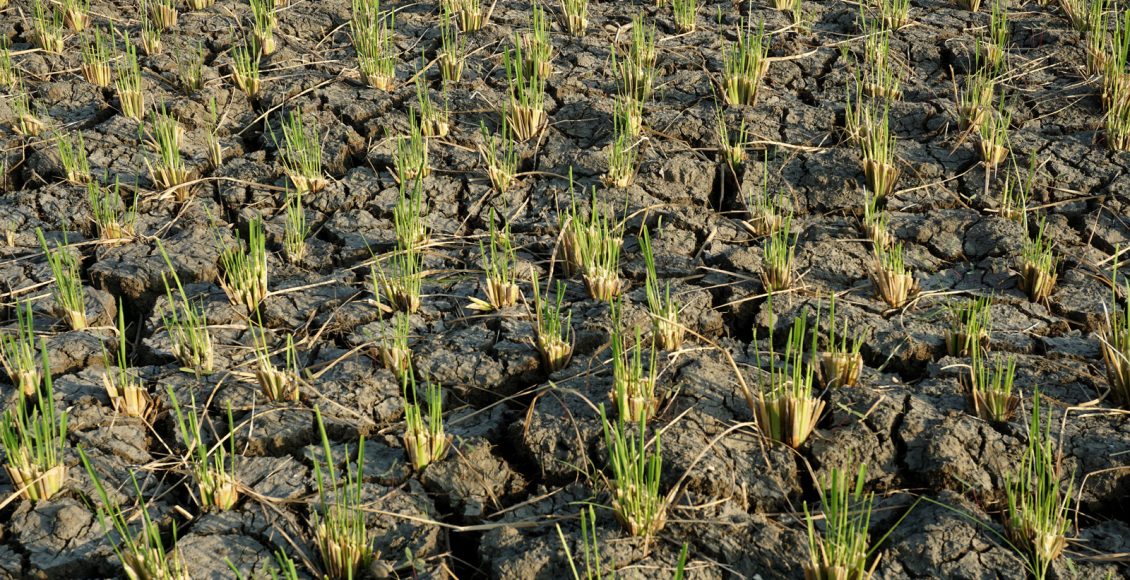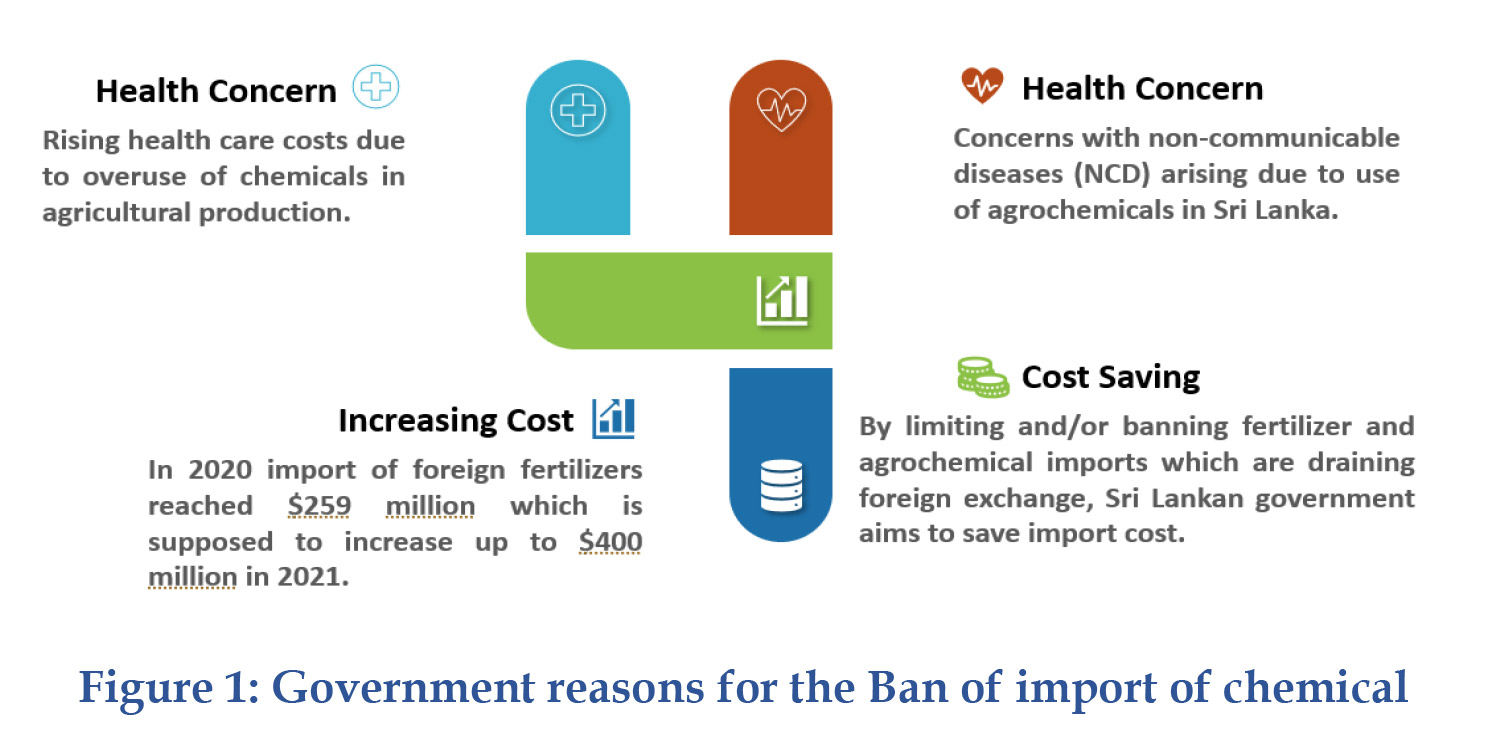
Tale of Sri Lanka Organic Hotchpotch and Opportunities for India
Sri Lanka is facing an unprecedented economic crisis since its independence in 1948. The country faces challenges with debt, shortage of medicine, fuel, fertilizer, and milk powder. COVID 19 severely hit the major economic drivers like tea, garments, spices, and tourism which used to bring the foreign exchange. How a country that has achieved the upper-middle-income status in 2020 finds itself in an economic crisis in pursuit of producing 100% organic food is something to ponder.
The answer lies in the half-baked vision “Vistas of Prosperity and Splendour.” The government of Sri Lanka, in April 2021, announced a complete ban on the import of chemical fertilizers and agrochemicals into the country. Figure 1 depicts the government’s reasons for the ban. Followed by this decision, there were huge consequences faced by the country’s Agri economy. Rice production was reduced by 20 %, leading to rice imports worth the US $450 million. Tea, the major export commodity, was severely affected, resulting in an economic loss of US $425 million, further worsening the country’s foreign exchange situation. The sudden decision increased the burden on technical apparatus that lacked the capabilities to train farmers in organic farming. With the ban, the government was also optimistic about producing one million tons of organic fertilizers per annum, but neither they could increase the production nor meet the demand. This lack of productive capacity and a formalized plan risked the country’s food security. The government was forced to lift the ban later and allowed the private sector to import and farmers to buy fertilizers from the open market.

Other countries, including India, can learn a lesson from the Sri Lanka crisis. Back home, Kerala is bringing 82,000 hectares of farmland under organic cultivation. The first “100 % organic state,” Sikkim, depends on neighboring state West Bengal for its food security. The primary issue with organic farming is the lower yield. The conventional varieties used in organic are suffering from lower yields. The proverb “Slow and steady wins the race” fits best if the country is well prepared to make a smooth transition, not an abrupt one, like Sri Lanka. It will give the experts enough time to train farmers in organic farming and build capacities, both on the back end and front-end of the supply chain, to meet the food demand and ensure food security. Even our other friendly South Asian Neighbor Bhutan, vowed in 2008 to become the world’s first 100 percent organic nation by 2020. In 2017, a study revealed that organic yield is 24% lower than the conventional yield, and the dream of 100 % organic is pushed to 2035. In organic cultivation, we cannot use preservatives or any processing as it may lead to the addition of chemicals. This makes organic produce more perishable in nature and for this shorter supply chains are required. Organic cultivation can supplement modern food production practices with the focus on using safe chemicals, increased use of biologicals, and other modern tools and technologies. It should not be the only food production practice in a country.
The crisis has also created opportunities for India to increase its export potential. Sri Lanka is the major exporter of orthodox tea, and the crisis has created a shortfall in the international market. The Indian orthodox tea, despite being famous, the exports were always lower than Sri Lanka. By streamlining the supply chain and improving the quality of the tea in compliance with international standards, India can increase its market share in the countries like Iran, and newer markets like Turkey and Canada could open. The textile market has also started shifting from Sri Lanka, but the significant inflow of orders went to countries with low or zero import duties like Vietnam and Bangladesh. Before, the import duty was 11 percent on cotton in India, and the government has recently removed the import duty on cotton. This has allowed Indian traders to compete in the international markets and grab the opportunity created by the crisis. Hence, India should strategically capitalize on opportunities created through a systematic approach.
Author

Connect with Authors at: E-mail agribusiness@sathguru.com
 Grow Beyond
Grow Beyond 

